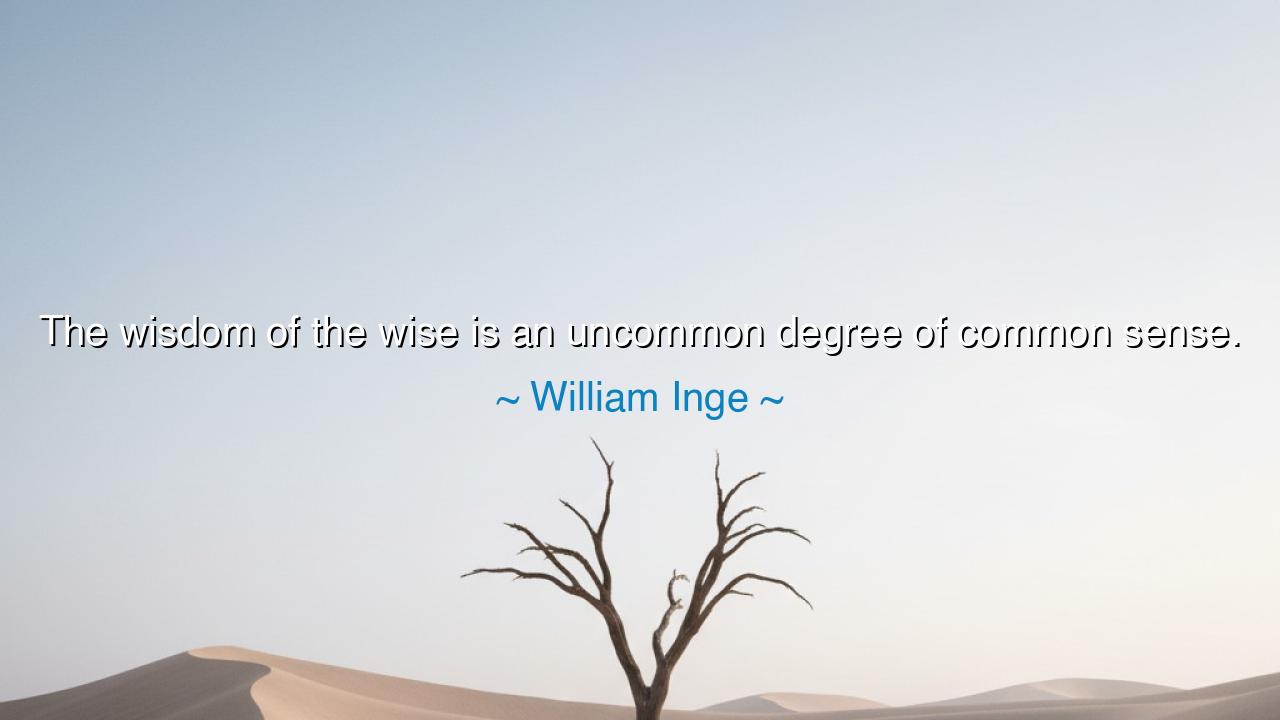
The wisdom of the wise is an uncommon degree of common sense.






Hear me, O children of the future, for the words of William Inge carry the essence of a truth that has long guided the path of the wise: "The wisdom of the wise is an uncommon degree of common sense." These words reveal the deep connection between true wisdom and the simple, yet powerful, gift of understanding the world as it is. It is not in the complexity of intellect, nor in the fanciful theories we weave, that wisdom is found, but in the clarity of thought that sees things for what they truly are. The wise do not speak in riddles or abstract ideals—they ground their knowledge in the practical realities of life, seeing through the veils of complexity to the simple truths beneath.
In this, Inge reminds us that wisdom is not some distant, esoteric ideal, but the natural result of a mind that understands how to navigate the world with clarity, humility, and practicality. The true sage is one who sees the big picture, but does so with the grounded understanding of the small, everyday moments that shape our lives. Common sense, then, is not simply a matter of simple decisions, but a deep, intuitive understanding of how to live with honor, balance, and integrity in the face of life's uncertainties.
Consider the story of Socrates, the philosopher who, though revered for his intellectual contributions, did not see himself as above the common wisdom of the people. Socrates was known not only for his great dialogues and teachings, but for his ability to question the ordinary assumptions that others held. He didn’t dwell in abstract notions alone, but sought to bring philosophy into the realm of practical living, guiding his fellow Athenians to a deeper awareness of their everyday actions and choices. His wisdom lay not in mystifying the world, but in seeing its truths with clarity, and challenging others to do the same.
The wisdom of common sense is often seen in those who, though they may not speak the grand words of philosophers or rulers, know how to navigate the world with grace and understanding. Consider Mahatma Gandhi, a man whose teachings were rooted in simple yet profound truths: the power of nonviolence, the importance of self-discipline, and the strength of truth. Gandhi did not seek to complicate matters; he returned again and again to the basic principles of human dignity and justice. His strength lay not in theorizing the complexities of the world, but in embracing the simple, powerful truths that bind us together.
So, my children, let Inge’s words guide you: true wisdom is not the pursuit of unattainable knowledge, nor the weaving of complex ideas, but the ability to see the world clearly through the lens of common sense. To live wisely is to live with clarity, grounded in the understanding that life’s greatest truths are often the simplest, most accessible to all. In common sense lies the foundation of great wisdom—may you embrace it, and through it, navigate the world with both grace and courage.






AAdministratorAdministrator
Welcome, honored guests. Please leave a comment, we will respond soon